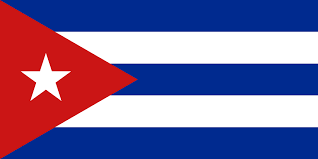
STRATEGIC ASSESSMENT. Cuban security forces deployed in force in the streets of Havana—as well as to the homes of key dissident leaders—to successfully thwart a planned opposition rally to demand greater political space and the release of political prisoners. As a result of government pressure, the diminished rally contrasted sharply with a spontaneous outpouring of dissent on July 11, 2021 when thousands swarmed the streets to protest food shortages, electricity blackouts, and a medical system overwhelmed by the COVID-19 pandemic. The July unrest had led many experts, as well as opposition leaders in and outside Cuba, to assess that the regime was weakening without the revolutionary leader Fidel Castro, who passed away five years ago, or his brother and successor, Raul, who relinquished Cuban Communist Party control in April, to rally regime supporters. There has been a widespread perception that Cuba’s new leader, president and party leader Miguel Diaz-Canel, lacks the charisma and revolutionary credentials to hold together the key levers of power against burgeoning popular opposition. The suppression of the November 15 attempted show of force by the opposition suggests that Diaz-Canel might be more capable of preserving regime rule than has been previously assumed, and willing to use all means necessary.
The upsurge of anti-government agitation complicates the U.S. intent to return to the Obama administration policy of engagement with Havana, and to shift away from the Trump administration efforts to isolate and pressure Cuba’s regime. In response to government arrests of leaders of the July protests, and consonant with President Biden’s pledge to focus on human rights, the Biden administration sanctioned the National Revolutionary Police force and its two top leaders. The Administration also announced it would take steps to improve the flow of remittances directly to the Cuban people and would seek ways to restore full Internet access for citizens on the island. Criticizing the security crackdown on the planned November 15 marches, Secretary of State Antony Blinken urged the regime to allow free assembly and let Cuban citizens “use their voices without fear of government reprisal.” There had also been consideration of increasing the staffing at the U.S. Embassy in Havana to increase U.S. contact with and outreach to dissidents. The Embassy was reopened by the Obama administration as part of its efforts to engage Cuba and depart from a 50-year policy based almost entirely on economic sanctions and efforts to isolate the regime. The Trump administration did not close the embassy even though it re-imposed many of the restrictions on U.S. travel to Cuba—for example, by prohibiting commercial flights from the U.S. to Cuban cities other than Havana—and other measures that the Obama administration had eased.
The issue of whether U.S. sanctions could cause policy change in authoritarian regimes is front and center in Cuba, as was the question of whether the adverse effect on the already mostly impoverished Cuban population is outweighed by the strategic benefits of the economic pressure. Sanctions issues were also closely watched by many U.S. companies that find Cuba potentially attractive for U.S. commerce and investment, particularly in tourism, agriculture, and machinery sales. The Obama administration concluded that sanctions had not weakened the regime, and in addition to the engagement measures mentioned above, in May 2015 it removed Cuba from the list of state sponsors of terrorism (“terrorism list”). Cuba was first placed on the list in 1982 because of its support for insurgent groups operating in Angola, El Salvador, Guatemala, and Nicaragua.
Among the many sanctions triggered by a terrorism list designation were a requirement that the United States vote against lending to the listed country by international financial institutions. Such lending was widely considered crucial to fund projects that might benefit the Cuban people. More as an expression of its overall efforts to pressure rather than engage the Cuban government, the Trump administration restored Cuba to the terrorism list ten days before leaving office, even though Cuba had not apparently been engaging in any new initiatives to support groups that conduct acts of terrorism. U.S. officials cited Cuba’s purported support for Colombian National Liberation Army (ELN) rebels and harboring of fugitives from U.S. justice to justify the re-designation. The Biden administration has not, to date, indicated that it will again take Cuba off the list, reflecting its reluctance thus far to reward Havana for its crackdown on oppositionists. Cuba’s continued placement on the list illustrates, with examples beyond Cuba, that it was far easier to impose terrorism-related sanctions than to ease them. Yet, any move by the United States to take Cuba off the terrorism list again would signal that the Administration might see indicators that engaging the Cuban government could yield benefits for U.S. interests and for promoting democratic evolution inside Cuba (TSC).





